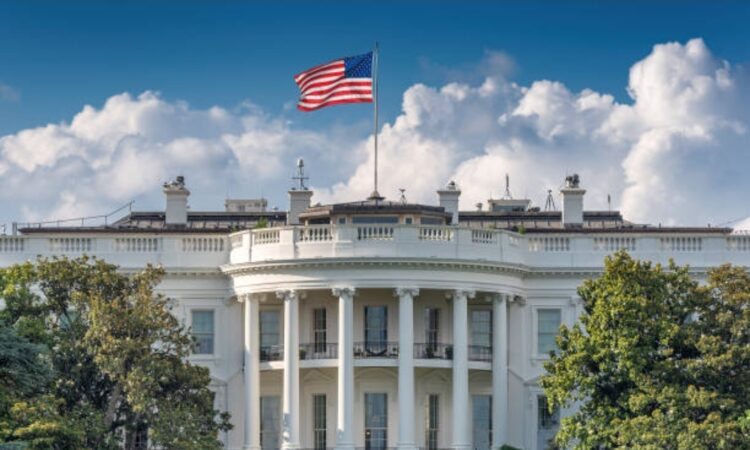White House Sends a Warning to Congress About What Will Happen If Trump’s ‘Beautiful’ Bill Is Not Approved

The White House made it clear that if Congress fails to approve President Trump’s massive new bill, it would be seen as a serious betrayal of the American people. The administration believes this legislation is critical and has been pushing hard to get it passed before the Fourth of July. The bill is being described by Trump as his “big, beautiful bill,” and Republicans in the Senate have been working long hours to complete the final version. It’s a massive package that affects nearly every part of the economy and government spending.
According to a statement released by the White House, the bill is designed to let Americans keep more of the money they earn. The administration argues that once this bill becomes law, people across the country will see bigger paychecks and a stronger economy. The message was firm: if lawmakers don’t pass the bill, it would be seen as a failure to deliver on promises made to the American people, and a rejection of policies meant to improve their financial lives.
As of Saturday, the Senate planned to hold a procedural vote to begin debating the bill. This version of the bill is enormous, totaling 940 pages and costing trillions of dollars. It includes a wide range of proposals: it would make Trump’s 2017 tax cuts permanent, stop the government from taxing tips and overtime pay, increase funding for border security, and remove green-energy tax credits that were passed during the Biden administration. These changes reflect Trump’s desire to reshape the government’s priorities and roll back many of Biden’s climate-focused initiatives.
However, not everyone is on board. Republican Senator Ron Johnson from Wisconsin said he would vote against the bill. In a Saturday morning interview, he explained that he had only received the final version of the bill just after 1 a.m. that same morning, and that he had not had enough time to go through such a complex piece of legislation. He also expressed doubts about some of its provisions, saying that while he appreciated Trump’s efforts to improve the bill, he could not support moving forward without a thorough review.
One major feature of the bill is a plan to raise the nation’s debt ceiling by about \$5 trillion. This increase is necessary in order to cover the cost of all the bill’s programs and changes. That figure has raised concerns among some lawmakers, especially fiscal conservatives who are wary of increasing the national debt. But supporters argue the bill is an investment in the country’s future and will lead to long-term economic growth.
The latest version of the bill includes most of the policies that were narrowly approved by the House of Representatives in May. However, it also makes changes to important social programs. For example, it adjusts Medicaid rules and reduces government spending on the Supplemental Nutrition Assistance Program, also known as SNAP, which helps low-income families buy groceries. These cuts have been controversial, especially among Democrats and some moderate Republicans.
Another issue has been how the bill affects rural communities. In earlier drafts, the bill would have reduced federal money going to rural hospitals and health providers through Medicaid. Lawmakers from states with large rural populations pushed back strongly, arguing that these cuts would hurt people who already have limited access to medical care. In response, the updated version delays those cuts and adds \$25 billion in support for rural Medicaid providers, but the assistance won’t begin until 2028 and will continue through 2032.
The bill also makes significant changes to the way people can deduct state and local taxes from their federal tax bills. It raises the cap to \$40,000, with a yearly adjustment for inflation until 2029. After that, the cap would return to its current level of \$10,000. For wealthier individuals making more than \$500,000 per year, the deduction would gradually be phased out. This change is meant to appeal to residents of high-tax states, especially in the Northeast and on the West Coast, where the current deduction cap has been a long-standing complaint.
Right now, Republicans hold a slim majority in the Senate, with 53 seats. That means they can only afford to lose three votes and still pass the bill, assuming Vice President JD Vance casts the deciding vote if the Senate ends up tied. While the House already passed a version of the bill by just one vote on May 22, it will have to vote again on the updated version once the Senate finalizes its changes. So even if the Senate passes the bill this weekend, the process isn’t over yet.
President Trump has been personally invested in the outcome. He’s made repeated public statements encouraging Republican senators to keep working through the weekend to get the bill done. On his Truth Social platform, he praised their efforts and stressed the importance of getting this bill to his desk before July 4. For Trump, this legislation is not just about tax policy or spending; it’s about fulfilling a central promise of his campaign and showing that he can deliver major results.
However, the process hasn’t been smooth. On Thursday, the Senate’s parliamentarian — the official responsible for making sure bills follow the rules of the Senate — rejected several parts of the proposal. One of the most significant items removed would have ended government-funded healthcare for non-citizens. The removal of that provision has slowed momentum and forced Senate leaders to adjust their strategy once again. It also shows how complex and fragile the process is, even when one party controls the chamber.
The outcome remains uncertain. While many Republicans support the bill and are eager to claim a legislative victory before Independence Day, others are concerned about the speed of the process, the size of the bill, and what it could mean for the country’s debt and spending priorities. The next few days will be critical in determining whether this high-stakes piece of legislation becomes law or fails to make it through Congress.




